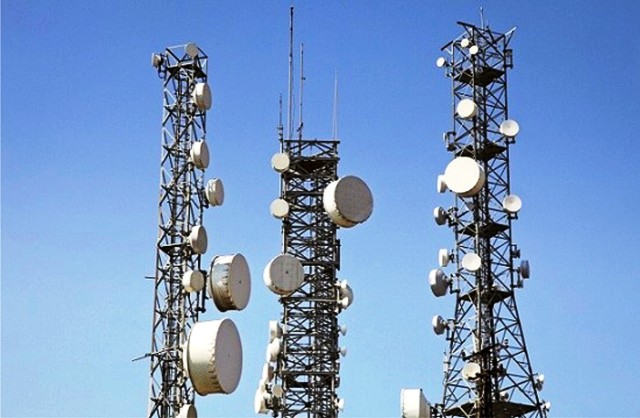Business
SIM-NIN: Telecom Consumers To Sue FG …Seek Policy Suspension

The National Association of Telecoms Subscribers (NATCOM) has said that it will sue the Federal Government in May to suspend the government’s barring of subscribers’ outgoing calls.
Recall that on Monday, April 4, 2022, the Federal Government ordered telecom companies to bar outgoing calls on all lines that are yet to link their National Identification Number (NIN) and the Subscriber Identity Module.
Following this directive, about 72.77 million active telecom subscribers were barred from making calls through their SIMs.
Responding, NATCOM urged the Federal Government to extend the implementation of the SIM-NIN policy by three months, and gave the government one month to implement the ban.
In an interview with The Tide’s source on Wednesday , President of the association, Adeolu Ogunbanjo, said NATCOM was set to take the government to court next month, if it fails to temporarily lift the ban.
He disclosed that the association will be joined in a suit already filed by Socio-Economic Rights and Accountability Project against the Federal Government on the NIN-SIM policy implementation.
“We have said that if the Federal Government does not lift the ban, we would go to court. But SERAP said it had filed a document in the court. So, we are giving the government until the end of the month.
“NATCOM is saying that by end of the month, we will go to court. We are going to court to ensure the government unbans the lines and extends the deadline. SERAP has made the first move already, we would be joined in the suit.
“After the expiration of our deadline for the government to reconsider its decision, we would formally go to court, along with SERAP. By the first week in May, we are joining SERAP in the court.”
Ogunbanjo noted that some subscribers who had linked their NIN with their SIMs prior to the directive were also blocked.
He said the directive was unfair to subscribers, adding that its implementation had affected their businesses.
“The present situation of things”, he said, “is so bad because a lot of people that have linked their NIN and SIM are also being blocked. These consumers now have to visit telecom service centres. This is unfortunate.
“When I spoke to one of the telecom companies, I was told that only ongoing calls were being blocked, as subscribers can still use data, WhatsApp, and text message services; which aligns with the directive of the ministry. However, several people use their lines for business, and this is having an effect on them.
“They can’t make call to their clients, this is a very terrible situation that is affecting businesses. These are part of the reasons we will join SERAP in the suit, so that the Federal Government can unban these lines. And we would request at least a minimum of three months extension of the exercise in the court”, he stated.
The President also alleged that racketeering had returned to the National Identity Management Commission (NIMC) centres as officials now charge between N3,000 and N10,000 for NIN registrations.
“The NIMC centres are jampacked. Telecom consumers are suffering. By the time they go to the centres, they have to pay between N3,000 and N10,000, depending on when the subscriber wants to get the NIN.
“Yes, the government says it is free, but these acts are open. Let security agents wear muftis and go to the NIN centres, they would see for themselves that the NIN centre officials are extorting members of the public. The only place they are not exploiting subscribers is the telcom centres, the mobile network operators.
“It is free there, but they are constrained as to how many subscribers they can attend to in a day. There is always a crowd there too. And sometimes, the network from the NIMC is slow. These are the situations subscribers are facing. This is unfortunate, and it is the reason we are requesting a deadline extension”, Ogunbanjo concluded.
Transport
Automated Points Concession : FAAN Workers Gave 72hrs To Revise Decisions In PH

Transport
FAAN Announces Pick-Up Points for Go-Cashless Cards

Business
Fidelity Bank To Empower Women With Sustainable Entrepreneurship Skills, HAP2.0
-
Politics3 days ago
2027: NIGERIANS FAULT INEC ON DIGITAL MEMBERSHIP REGISTER DIRECTIVE
-

 Environment3 days ago
Environment3 days agoLAWMA Director Says Sweeping Reforms Have Improved Waste Collection
-
Politics3 days ago
LP Crisis: Ex-NWC Member Dumps Dumps Abure Faction
-

 Politics3 days ago
Politics3 days agoUmahi Dismisses Allegations On Social Media, Insists On Projects Delivery
-

 Sports3 days ago
Sports3 days agoAbia Not Sure To Secure continental Ticket
-
Politics3 days ago
NATASHA ELECTRIC VEHICLES INITIATIVE IN KOGI CENTRAL
-
Sports3 days ago
La Liga: Yamal Records First Career Hat-trick
-

 Sports3 days ago
Sports3 days agoPSG Extend Lead In Ligue 1

